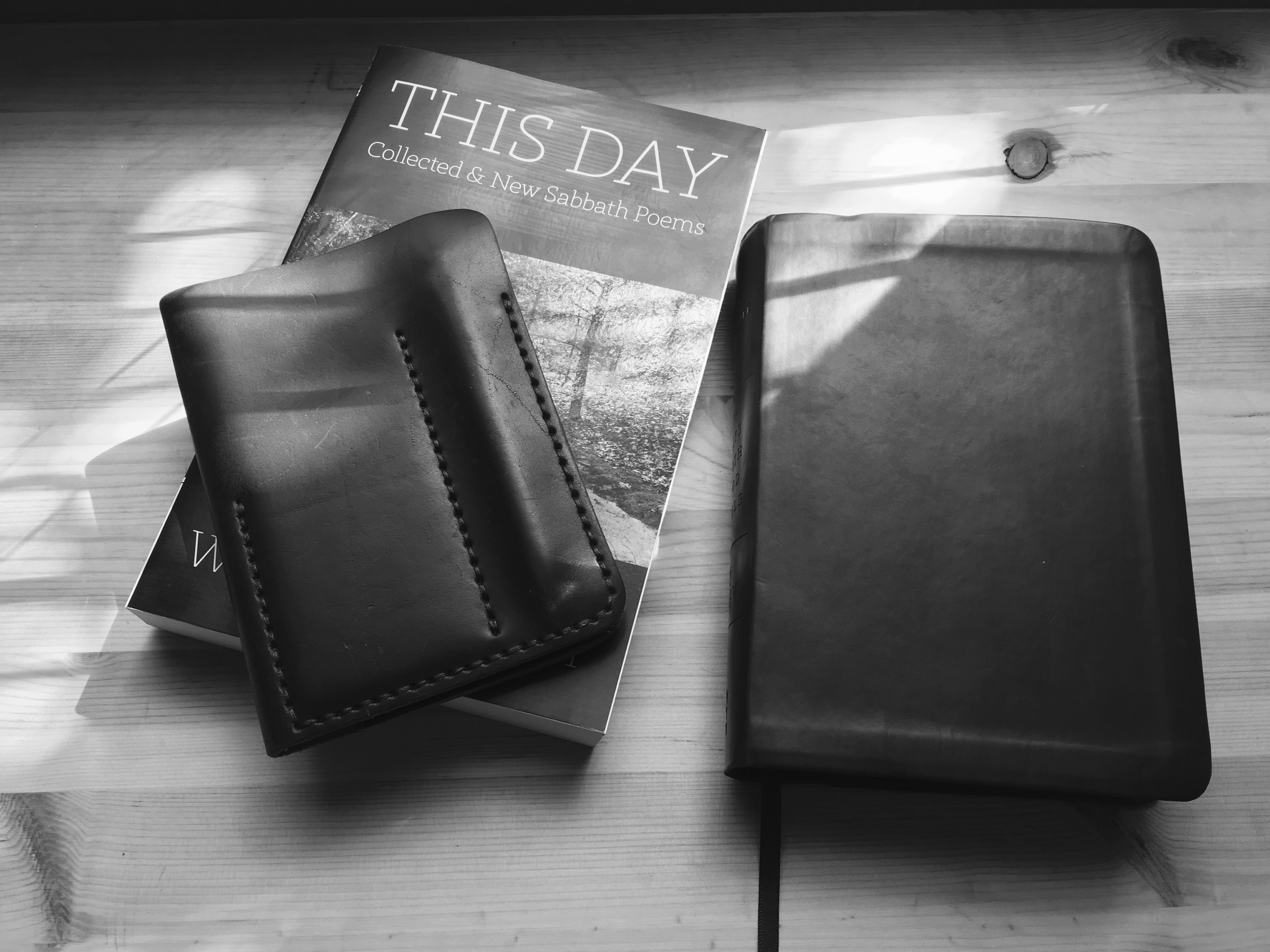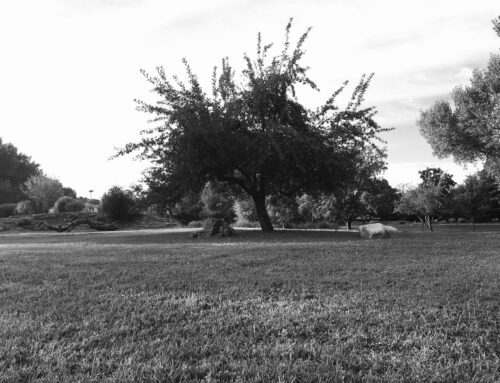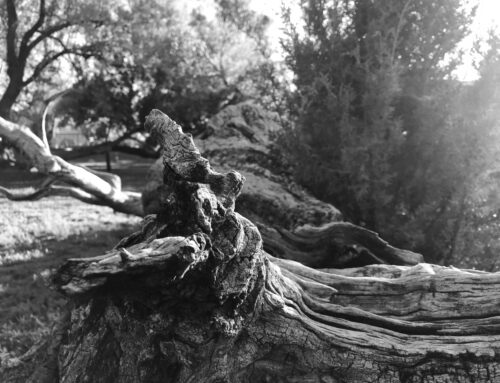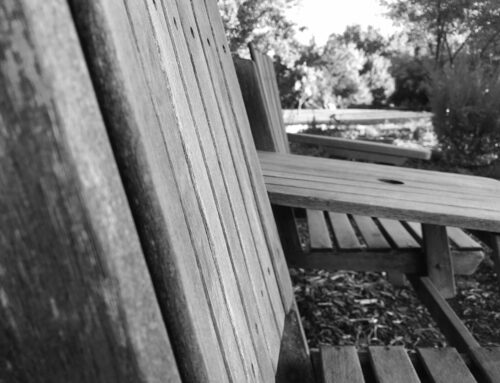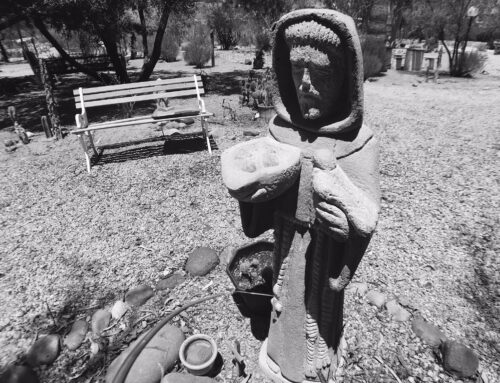Your Sabbath, Lord, this keeps us by
Your will, not ours. And it is fit
Our only choice should be to die
Into that rest, or out of it
Wendell Berry
Lately, I have been noticing an increased need to engage in solitude. My personality type (type 9 on the Enneagram) gets to a point in the week where (as I tell my kids) my battery is empty and I have to recharge. Ignoring this need produces unpleasant results. And the thing is rest is something that we see God not only do in the creation story (Genesis 2:1-3), but He also placed it as a priority for Israel in their early history as His people (Exodus 20:8-11; 23:12-13), and as a part of the culture, not only did Jesus practice a rhythm of weekly sabbath, but also regular individual rest and solitude – going off alone to pray (Mark 1:35, 1:45, 2:13, 6:31-32; Luke 5:15-16, 6:12-13, 9:18; Matthew 14:13; etc.). I believe that is very telling. We all need to recharge – we all need rest, and not just for energy.
Now, I recognize that as an introvert who loves silence and solitude, not everyone is as enthusiastic. There are extroverts who cringe at the thought of alone time, but alas, solitude isn’t just for rest, it is necessary for perspective, as well as identity. Who we are is not the summation of what others say about us. We need it in order to be healthy and differentiated. In my experience, solitude helps me turn off the voices of media and society, to do the deep work of feeling, and listening. Feeling as a human, and listening for my identity from the Father. I like how Henri Nouwen talked about solitude in his book The Way of the Heart, he talked about how solitude is not about learning how to be alone, but rather how to be alone with God.
Here are a couple of reflections on Sabbath rest and solitude:
Rest is a choice, and one of the best choices for rest is unplugging.
We can have a day off, but that does not necessarily mean that rest will happen. I believe there are things that we do to ‘rest’ that actually don’t result in rest, i.e. social media, binge watching shows/movies, playing games on smartphones, etc. Technology isn’t bad in and of itself, but I believe we need to create a healthy relationship to it. What would it look like and/or feel to not login or open social media? We were created to be analog not digital beings. We are created to feel the wind, get dirt under our nails, and live in the real world. So, unplugging from the ‘Matrix’ is an important part of creating a rhythm of rest. It’s getting off the hamster wheel that we often find ourselves on and being still and breathing. It’s something we need to continually be reminded to do.
Sabbath is creating holy space
“Remember the Sabbath day and keep it holy” (Exodus 20:8). Beyond the day of the social Sabbath (i.e. the day you celebrate it), the point of Sabbath is not just to take a break from work, but to think about the relationship with God that we were created for. I appreciate these thoughts from Henri Nouwen:
In solitude, we come to know the Spirit who has already been given to us. The pains and struggles we encounter in our solitude thus become the way to hope, because our hope is not based on something that will happen after our sufferings are over, but on the real presence of God’s healing Spirit in the midst of these sufferings.
The discipline of solitude allows us gradually to come in touch with this hopeful presence of God in our lives, and allows us also to taste even now the beginnings of the joy and peace which belong to the new heaven and the new earth.
Also, within the idea of ‘creating holy space,” lately, I’ve felt more and more urgency toward the aspect of ‘creating.’ In this, I’ve been experiencing Nouwen’s idea of coming in touch with the hopeful presence of God in my life. Something that has been helpful for me is a book by Wendell Berry called, This Day: Collected and New Sabbath Poems. Wendell Berry is a poet, novelist, farmer, as well as a cultural critic and environmental activist. His book, This Day, is a collection of poems that he wrote from the solitude of Sunday walks, spanning from 1997 to 2013. One thing that I gleaned from reading this is that the poems range from his faith, to observations of nature, to lament-like declarations related to his passion of environmental activism. The sacred space that his poetry invites us into is him being himself in solitude.
So, this week as I rested in solitude, I was thinking about life: practicing the Examen Prayer, thankfulness for what I have, praying into how I hear Him calling me, and praying for grace in some areas as well. As a part of that, I pulled out my field notes journal and wrote the following:
Reset: a Sabbath prayer
by Joel Bidderman
Break the watch (the tyrant of anxious plans)
And let the moment breathe
In: the present moment, and out: the same
Listening for the still small voice to call my name
A world in wreck
Hearts in pain
A world cries out
Through blue backlit logos with filters and names
As they say many things they otherwise would not proclaim
But You call deeper and beyond the plastic and computer chips
To a life of wonder, a life of worship
Knowing the rocks will cry out if I don’t get my voice back
Where the heart’s grown weary of living in theory, let Your presence be my fact
Oh Consuming Fire, relight this heart’s desire
To be a shining light in a world that’s lost its sight
I’m a pauper and a child, but I am Yours
Come and have Your way, in my day and in my world
Resources:
9 Positive Benefits of Social Media Detox
Celebration of Discipline, Special Anniversary Edition by Richard Foster
Making All Things New: An Invitation to the Spiritual Life by Henri Nouwen
The Way of the Heart: Connecting with God Through Prayer, Wisdom, and Silence by Henri Nouwen

